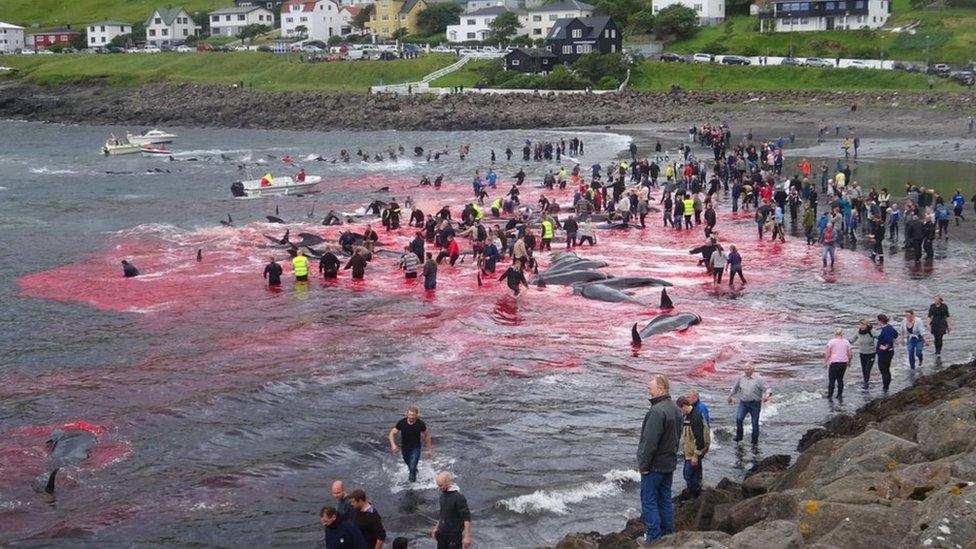Japan 'to leave whaling commission to resume hunting'
- Published
- comments
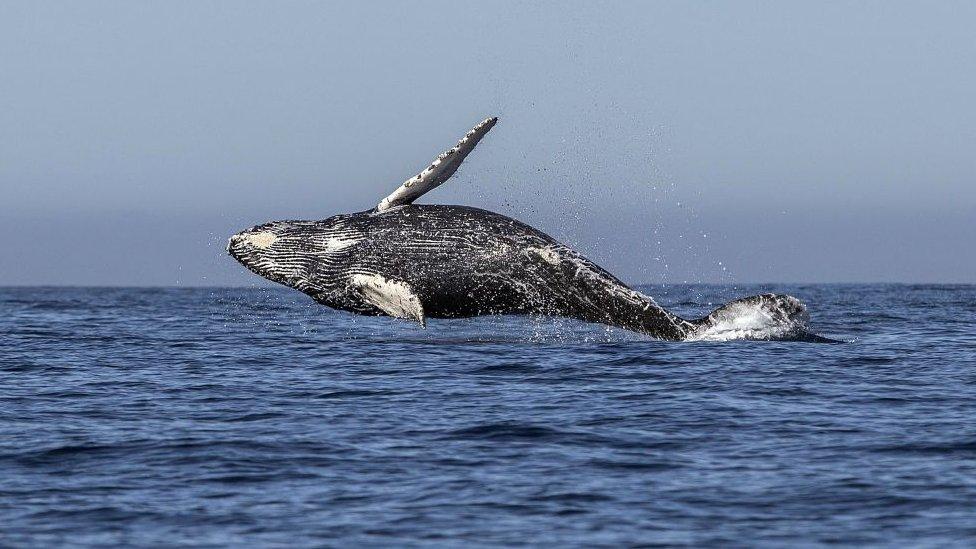
Commercial whaling has driven some whales to the brink of extinction
Japan plans to leave the International Whaling Commission (IWC) to resume commercial hunting, media reports say.
The government told its MPs of the decision, external, NHK reports. There has been no official confirmation of the move.
Commercial whaling was banned by the IWC in 1986 after some whales were driven almost to extinction.
For many years Japan has hunted whales for what it calls "scientific research" and to sell the meat, a programme widely criticised by conservationists.
The Japanese government is expected to cite the recovery of certain whale species as justification for the move, although it's thought to be considering whaling only in its own waters.
Officials in Japan say eating whales is part of its culture.
A number of coastal communities in Japan have hunted whales for centuries, but consumption in the country surged only after World War Two when whales were the main source of meat. It has plummeted in recent decades.
What's the reaction?
Wildlife protection groups have already criticised the planned withdrawal, external.
Despite Japanese media widely reporting the decision has been taken, there has been no official announcement yet.
Hideki Moronuki, from the Fisheries Agency of Japan, told the BBC that Japan was considering every possible option but has "not yet come up with a decision".
Citing unnamed government sources, Kyodo news agency said a formal announcement could come next week, external.
In September Tokyo tried to get the IWC to allow commercial catch quotas but the proposal was rejected.
What is the current whaling ban?
In 1986, IWC members agreed to a moratorium on hunting to allow whale stocks to recover.
Pro-whaling nations expected the moratorium to be temporary, until consensus could be reached on sustainable catch quotas.
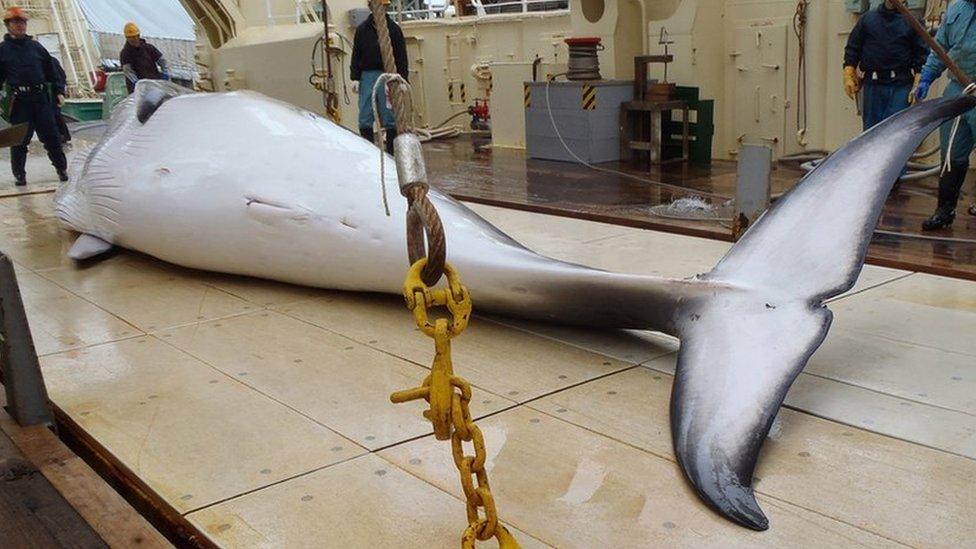
Currently, Japan kills whales under a so-called scientific research programme
Instead, it became a quasi-permanent ban. Whaling nations, such as Japan, Norway and Iceland, however argue the practice is part of their culture and should continue in a sustainable way.
Today, whale stocks are carefully monitored, and while many species are still endangered, others - like the minke whale that Japan primarily hunts - are not.
Can Japan just leave?
If Japan wants to leave the IWC, it has to send a notification by the end of the year. It would then be able to leave on 30 June 2019.
Japan would, however, still be bound by certain international laws.
The UN Convention on the Law of the Sea binds countries to co-operate on the conservation of whales "through the appropriate international organisations for their conservation, management and study". The text does not say which international organisation that is.
Japan could either try to set up another international body if it manages to get enough other countries to sign up - or join an existing one like the North Atlantic Marine Mammal Commission (Nammco) instead.
Like a smaller version of the IWC, Nammco is a grouping of pro-whaling nations - Norway, Iceland, Greenland and the Faroe Islands - born out of frustration with the IWC.
Hasn't Japan been whaling all along?
Yes, Japan has been hunting whales for the past 30 years but under a scientific programme, granted as an exception under the IWC ban.
Critics say the practice is a cover for what actually amounts to commercial whaling.
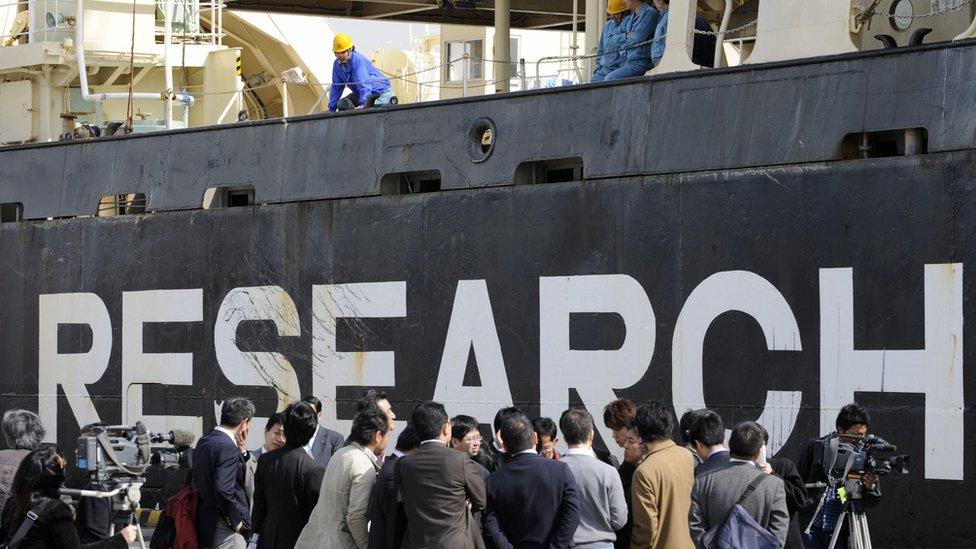
Currently, Japan takes around 300 to 400 whales each year
It means that whales can be taken for scientific studies and the meat can later be sold for consumption.
Japan has caught between about 200 and 1,200 whales each year, saying it is investigating stock levels to see whether the whales are endangered or not.
Why can't the IWC agree?
Japan has repeatedly tried to overturn the moratorium and secure agreement on sustainable catch quotas.
The last attempt to do so came in September at an IWC summit in Brazil.
Japan offered a package of measures, including setting up a Sustainable Whaling Committee and sustainable catch limits "for abundant whale stocks/species".
The proposal was voted down. Since then there has been talk of the country simply leaving the body so it will no longer be bound by its rules.
- Published8 February 2016
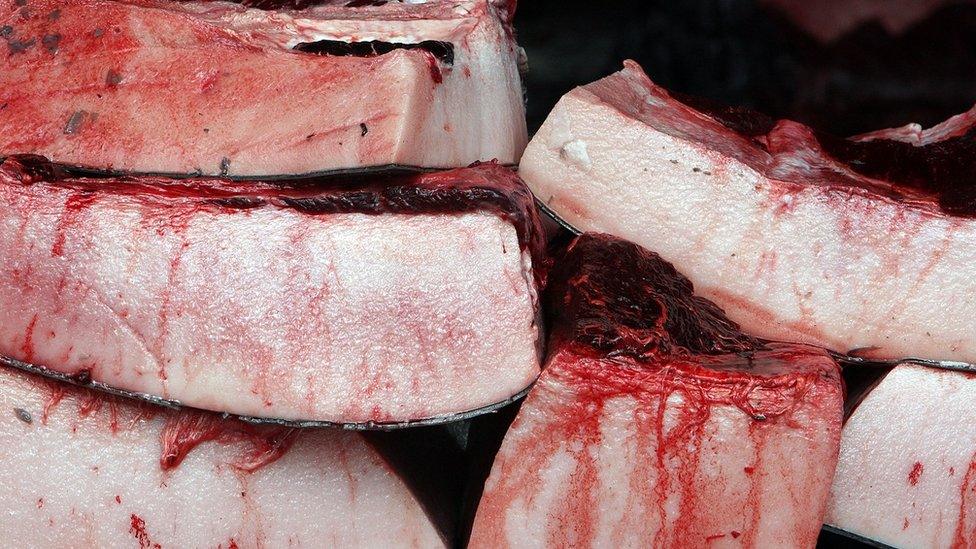
- Published12 September 2018
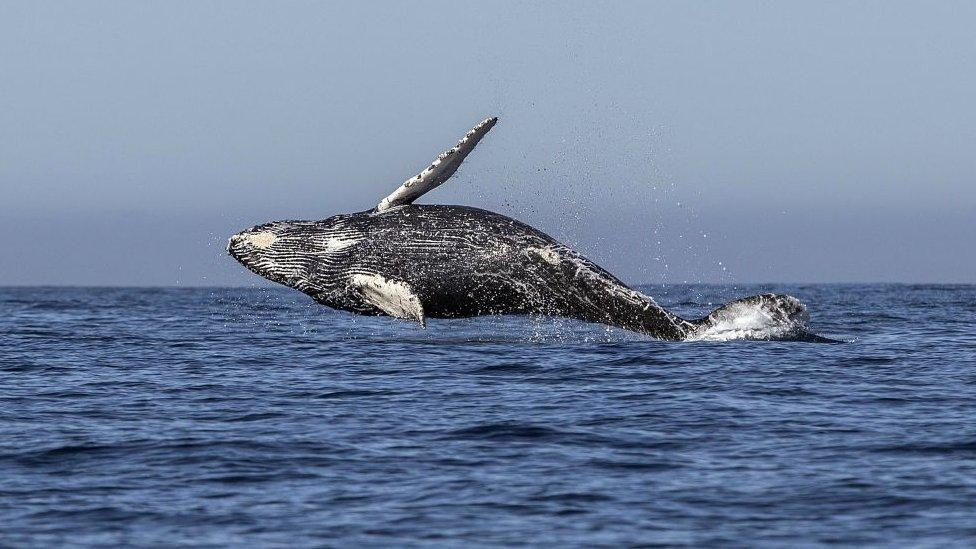
- Published7 September 2018
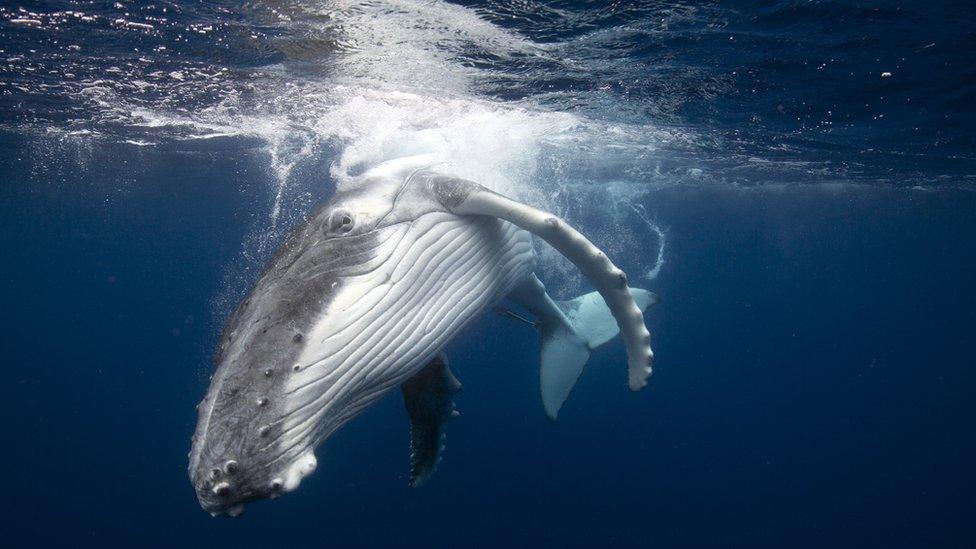
- Published16 August 2018
